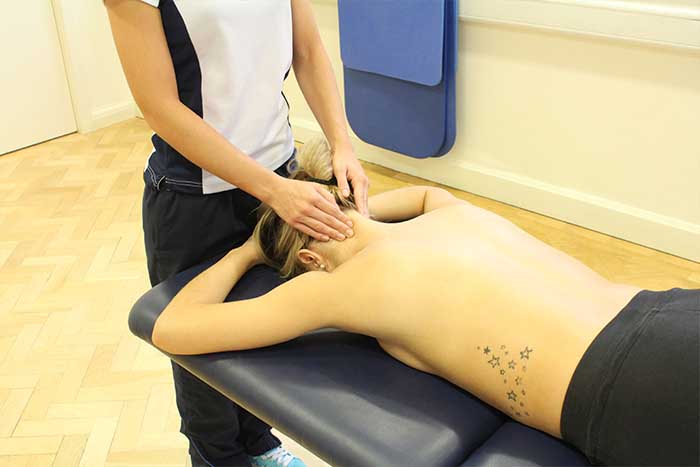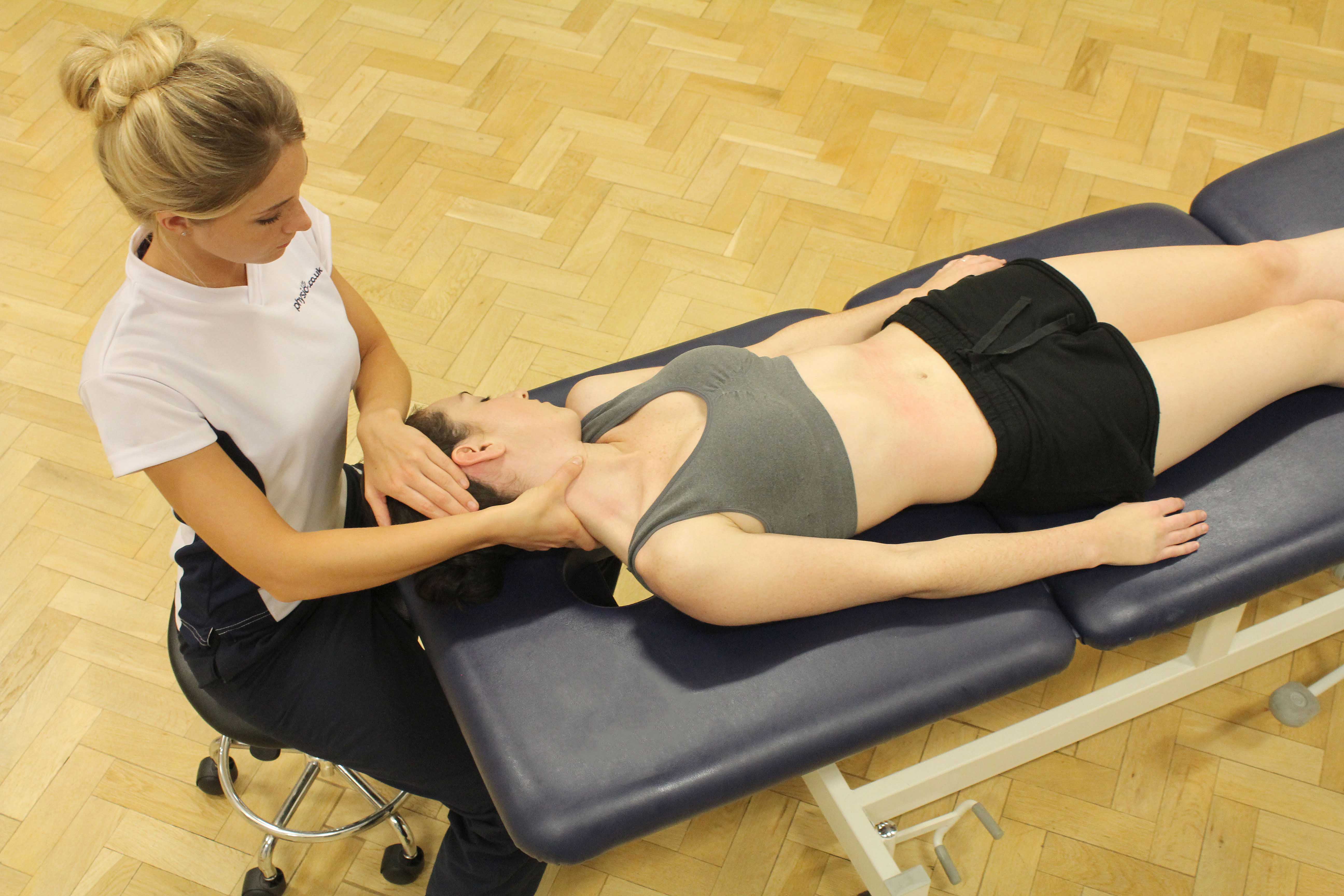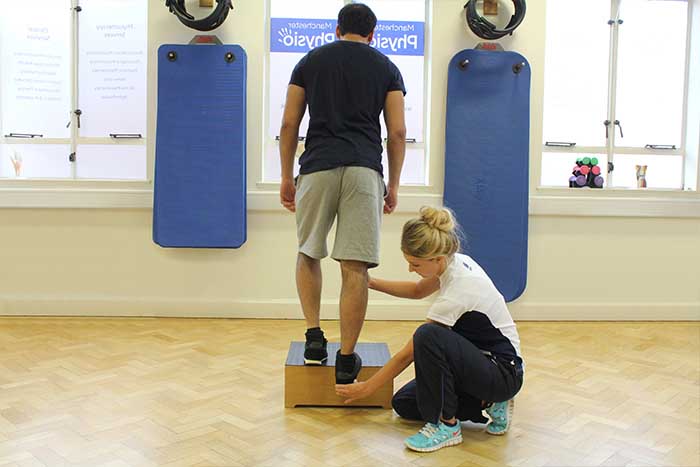Massage treatment can be used to manage a number of long term conditions. Long term conditions can be physically, psychologically and emotionally challenging because of the excess demands placed on the human body which can result in the individual feeling drained with regular mood swings. Establishing an effective management programme is essential to maintaining or improving overall health and well-being. The therapists at Physio.co.uk can provide effective treatment to target a range of symptoms commonly associated with long term conditions such as pain, limited range of movement and stress.

What is massage for long term conditions?
A long term condition refers to a condition where no true cure currently exists. Treatment for long term conditions revolves around management and coping strategies, most of which include some kind of medication in conjunction with manual therapy. Examples of this can be Parkinsons and arthritis. Long term condition can often include symptoms such as reduce range of movement, chronic pain, reduced flexibility, stress, muscular spasm and swelling. Massage therapy can be extremely beneficial to an individual suffering from one or more symptoms due to the physiological processes involved during the application of massage.
 Above: Soft tissue massage of the trapezius muscles by a specilaist massage therapist
Above: Soft tissue massage of the trapezius muscles by a specilaist massage therapistWhen can massage help for long term conditions?
Massage therapy can help with both physical and psychological problems and can therefore be used in a number of circumstances such as;
Massage therapy can be applied during the presence of chronic pain. Chronic pain refers to pain that has been persistent for longer than a 6 month period. Massage therapy can help reduce or eliminate chronic pain through a number of physiological effects. Through the application of gentle massage strokes, the sensation of pain can be reduced through the pain gate theory, which refers to a process whereby signals of pain are blocked from reaching the brain. Massage can also decrease chronic pain by increasing blood circulation, increasing tissue temperature and reducing scar tissue.
Massage therapy can produce various benefits when applied during periods of stress. Psychological stress is very common when suffering from a long term condition due to having to adapt to an altered lifestyle. The application of gentle massage strokes can produce changes in hormone production which can produce a reduction in stress and an improved state of mind. When relaxing massage strokes are applied the body is stimulated to release natural endorphins such as serotonin and dopamine. Elevated levels of serotonin and dopamine can leave the individual feeling positive with a sense of well-being.
Massage can be used to address the presence of tight muscles. Tightness within muscles can occur during long term conditions due to muscular guarding. Muscle guarding is a process where the brain stimulates muscles to contract to protect an area of the body which is ill functioning or injured. Massage can reduce the presence of tight muscles through the application of moderate to deep massage strokes aimed at longitudinally stretching each muscle. Massage can further decrease tight muscles by increasing tissue temperature and improving tissue elasticity. If left untreated, tight muscles can increase the risk of injury, prohibit range of movement and reduce muscular flexibility.
What are the physiological effects of a massage for long term conditions?
The application of massage can produce a number of physiological effects such as;
Massage can increase capillarisation. Capillarisation refers to the process where the number of capillaries increases. Capillaries are blood vessels responsible for exchanging substances such as oxygen, nutrients and waste products between the blood stream and the body's tissues. The greater number of capillaries the greater the efficiency in the deliverance of essential nutrients and the removal of harmful waste products from tissues is. During long term conditions the tissues may be lacking in nutrients and vitamins which may be contributing to the symptoms associated with the long term condition.
Massage can increase the release of endorphins serotonin and dopamine. Endorphins are released during times of happiness and relaxation. Low levels of serotonin and dopamine are related to negative thoughts, anxiety and depression. Massage can stimulate the release of endorphins by stimulating the autonomic nervous system. Elevated levels of serotonin are associated with feelings of well-being, happiness and relaxation. Elevated levels of dopamine are linked to feelings of motivation, self-worth and enthusiasm. By increasing the levels of endorphins a reduction in the risk of anxiety, depression and mood swings can be observed.
Massage can breakdown/ realign collagen fibres. Collagen fibres are laid down in a disorganised fashion to repair damages tissues, this can be functional during the initial stages of repair. If collagen fibres are left in this disorganised fashion during later stages of repair the fibres can inhibit movement, cause pain and reduce tissue flexibility. Massage can realign collagen fibres by breaking down the adhesive connections within them through the application of direct pressure. The breakdown/ realignment of collagen fibres can improve performance, flexibility, range of movement and decrease pain.

What are the benefits of a massage for long term conditions?
The therapists at Physio.co.uk can apply massage using a variety techniques and skills. The application of massage can produce a number of benefits such as;
Massage can decrease pain through the pain gate theory, an increase in tissue temperature and the removal of waste products. The pain gate theory states that non-harmful stimuli (massage) can block harmful stimuli (injury/inflammation) from transmitting impulses up the spinal pathway to the brain. Non-harmful stimuli are able to block harmful stimuli impulses because non-harmful stimuli impulses are sent up a quicker and larger nerve fibre. The blockage of impulses sent from harmful stimuli results in a reduction of the feeling of pain. Massage can decrease pain through increasing the temperature of tissues, this is achieved through stimulating vasodilation. Vasodilation refers to the widening of blood vessels which causes an increase in blood circulation, this helps warm the tissues and decrease pain. Massage can also decrease pain through the removal of waste products. An increase in the removal of waste products is achieved through an increase in blood circulation and can decrease pain, improve recovery and tissue healing.
Massage can reduce stress. Psychological stress is a common symptom of long term conditions. A reduction in stress is achieved through alterations in hormone production. Massage can inhibit the production of cortisol. Cortisol is a hormone released from the adrenal gland when the hypothalamus within the brain detects a threat. Low levels of cortisol are beneficial during the "fight" or "flight" response as it allows the individual to feel aware and alert. Prolonged periods of high cortisol release can leave the individual feeling stress, anxious and even depressed. Massage can inhibit the production of cortisol by promoting relaxation which causes the hypothalamus to detect no threats and therefore cease the release of cortisol. Massage can stimulate the release of the body's natural endorphins serotonin and dopamine. Increasing the levels of serotonin and dopamine within the blood stream can leave the individual feeling positive, motivated and enthusiastic.
Massage can increase range of movement. Limited range of movement is a common symptom associated with a long term condition due to both the physiological and social effects of the condition limiting physical activity. If poor range of movement is left untreated the joint structures can become adhesive causing further restriction in range of movement in addition to a reduction in flexibility and tissue elasticity. Massage can improve range of movement by increasing tissue temperature and decreasing scar tissue. Massage can increase range of movement by increasing tissue temperature, this is achieved through increasing blood circulation. Massage can increase blood circulation by stimulating vasodilation, which is when the smooth muscles surrounding blood vessels relax allowing the vessels to widen and allow further blood flow. The increase in blood flow stimulated through massage can warm the tissues allowing them to become more pliable and relaxed. Massage can also increase range of movement by reducing present scar tissue. Scar tissue contains adhesive collagen fibres which have poor flexibility, elasticity and can produce pain. Massage can reduce the presence of scar tissue by breaking the adhesive connections between the collagen fibres which can allow the tissue to increase in flexibility.
Summary
Overall massage can be extremely beneficial to an individual suffering from a long term condition due to the physical and psychological burden placed upon the individual. Massage treatment can be tailored and adapted to benefit an individual during a range of circumstances such as chronic pain, stress and tight muscles. Massage has the ability to produce a number of physiological effects such as increased capillarisation, increased endorphins serotonin and dopamine and the breakdown/ realignment of collagen fibres. The physiological effects of massage can produce a number of benefits such as decreased pain, reduced stress and increased range of movement.
How can I arrange a massage for a long term condition?
To arrange a massage to help long term conditions at Physio.co.uk, email us at office@physio.co.uk or call us on 0161 883 0077.
You can also book an appointment online and save £10.

 0330 088 7800
0330 088 7800


































